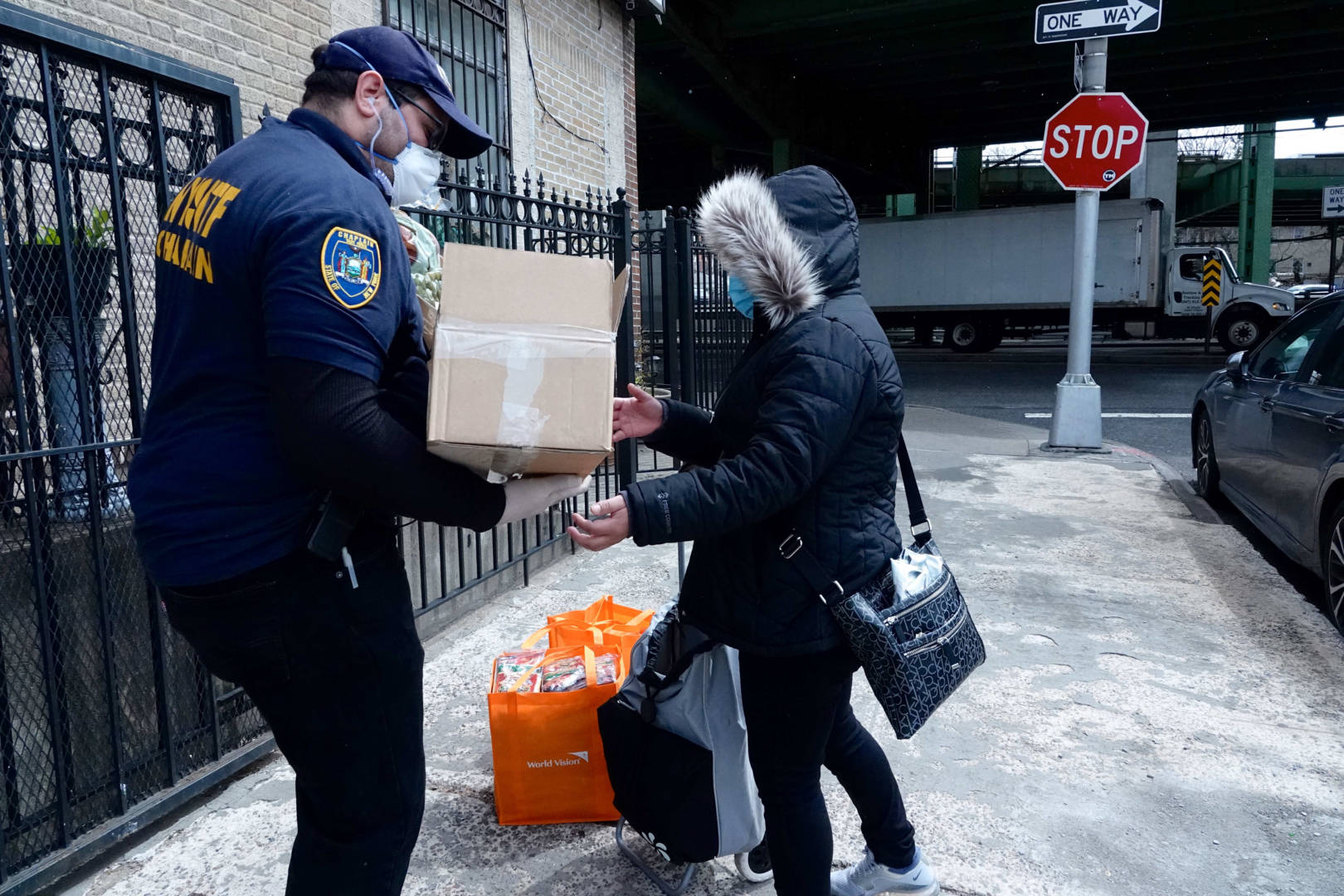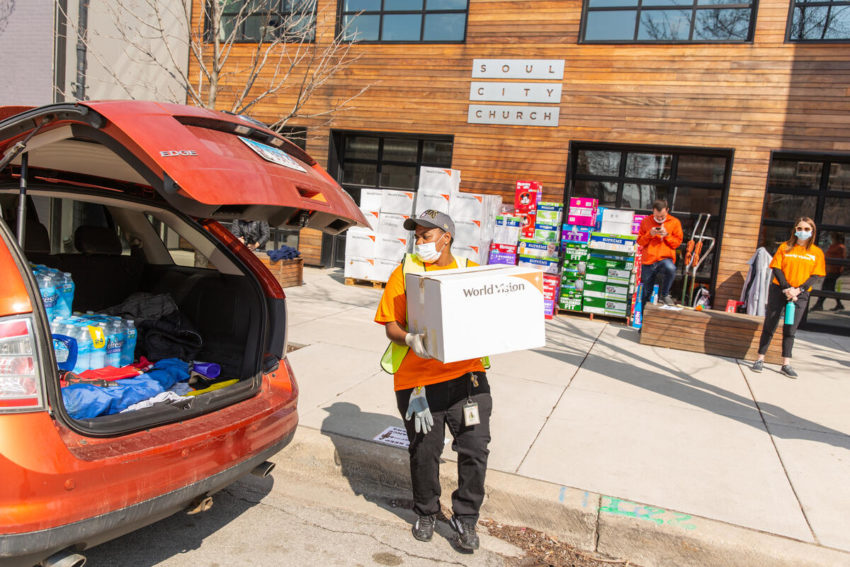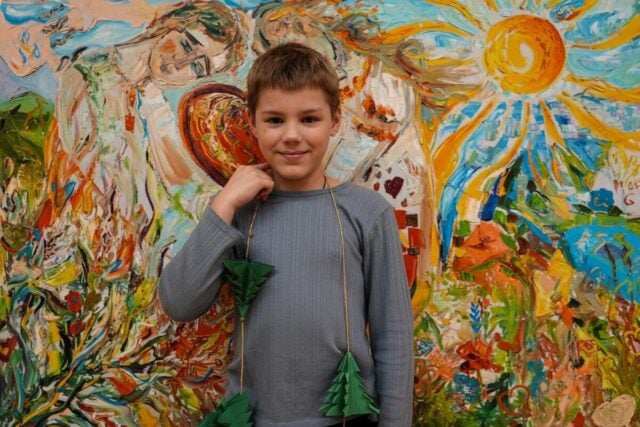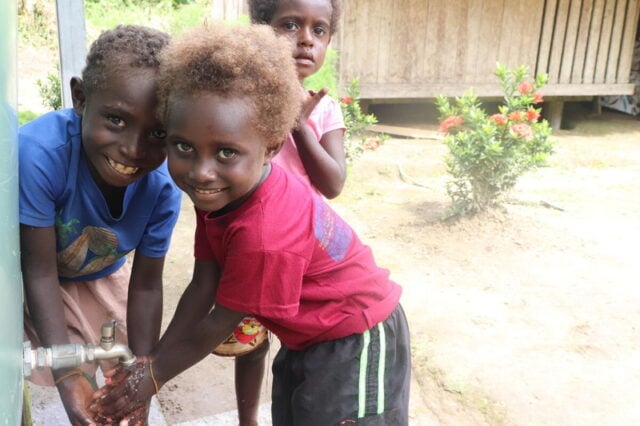The COVID-19 pandemic is making children and families more vulnerable all around the world. Developed countries with robust health systems are struggling to cope, but health systems in low-income, fragile, and conflict-affected countries are collapsing under the strain of too many sick people, too few medical staff, and a lack of personal protective equipment. These are the places and people who need us most. World Vision advocates on their behalf with national governments, global health bodies, and donors.
“We are all in this together, so as an organization, we’re engaging everywhere, despite the personal and organizational challenges,” says Jeff Wright, World Vision’s COVID-19 response director.
To combat COVID-19, we are partnering with community groups, faith-based organizations, United Nations agencies, other aid groups, and all levels of governments. Collaborating and advocating aren’t new for us, but where our community access is limited, they are vital.
Also, as a Christian, child-focused humanitarian organization, we are united in prayer, calling on God to give us wisdom and strength to be innovative and effective in carrying out our work. When the virus hit, World Vision responded with a prayer chain. To date, thousands of prayer requests have come in — prayers for people affected by job losses, for finances, for healing, for peace. Each request is prayed for by World Vision staff.
If you would like prayer, please call the World Vision prayer line at 888.858.PRAY (7729) between 6 a.m. and 6 p.m. PST.

Global coronavirus response
World Vision is helping families in the world’s largest refugee camp in Cox’s Bazar, Bangladesh, to stay safe. Nearly a million Rohingya refugees, most of whom fled violence in Myanmar in September 2017, live shoulder to shoulder in an area about the size of Central Park — a recipe for rapid disease transmission. In addition to distributing soap to more than 88,000 refugees, World Vision staff are teaching children and adults to cough into their elbows to help avoid spreading the virus.
In a camp this large, it takes many voices to disseminate these life-saving messages. World Vision staff work through local leaders, including imams and majhis, the community camp leaders, to get the word out. Faith and camp leaders speak to groups of men, women, and children at food distribution points and e-voucher shops, where refugees use cards issued by the World Food Programme and its partners, including World Vision, to purchase fresh food. Messaging includes important information about frequent handwashing, physical distancing, and advising older refugees to stay indoors as much as possible.

U.S. coronavirus response
A spiritual leader in New York, Pastor Francisco Fernandez was once homeless. “I don’t want to see [the community] go through that,” says Francisco, the pastor of Iglesia Sol de Justicia in Brooklyn. He is also a New York state chaplain.
Because of COVID-19, his already-struggling community faces more hardship due to job losses. He says, “The community’s greatest need right now is food. They’re crying out for food. They’re hungry.”
The community’s greatest need right now is food. They’re crying out for food. They’re hungry.—Pastor Francisco Fernandez
Pastor Fernandez believed the church had to act. “This is a time we need to step out of the four walls,” he says. At that same time, World Vision asked if his church — a World Vision partner for nearly three years — would distribute Family Emergency Kits that include food to feed a family of five for a week.
Nearly 100 families received the kits in early April to help ease a little of the pain they are facing. That was only the beginning. The church continues to distribute Family Emergency Kits, and across the U.S., as of June 9, World Vision had supplied 16,100 Family Emergency Kits.
Pastor Fernandez says, “Please continue to give. It’s making an impact. It’s helping people truly in need.”
Kari Costanza, Sevil Omer, Lauren Reed, Kathryn Reid, and Laura Reinhardt of World Vision’s U.S. staff contributed to this story.




